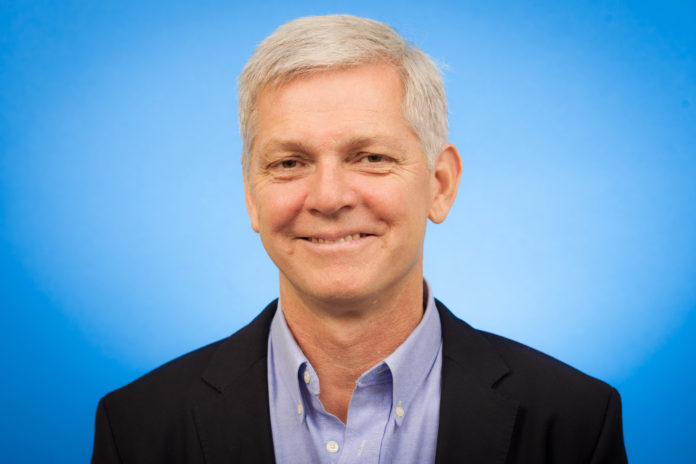By Jennifer Stranges
As the second wave surges across Ontario, hospitals are facing significant pressures from COVID-19, particularly around bed capacity.
Recently, the province created a new time-limited incident management system (IMS) for the Greater Toronto Area to monitor resources and redirect them where pressures are being felt the most. Under this new system, if a hospital needs help managing a high volume of patient cases, other hospitals can quickly share the burden.
The province appointed Dr. Andrew Baker, Chief of the Departments of Critical Care and Anesthesia and the Medical Director of the Surgery and Critical Care Program at St. Michael’s Hospital of Unity Health Toronto, as Incident Command Leader. We spoke with him about the challenges hospitals face and why it’s so important to come together under a ‘single system philosophy.’
What is the GTA Hospital IMS?
With our given authority, we monitor bed capacity across the region, respond in a timely manner, move patients around or redirect resources if required. We also consider capacity for services at a regional level, for example making sure hospitals with unique services like a trauma centre, neurolosurgery program, or burn care are not overly burdened.
There are 28 GTA hospitals involved, and we meet at least once a day, seven days a week. There’s representation from hospital administration, infectious disease physicians, general internal medicine, emergency medicine physicians, operations, data experts, and more.
Why is the GTA Hospital IMS necessary?
COVID-related pressures are increasing and there are two factors we need to consider. First, the surge of cases would point toward the possibility of significant threats to health care, such as restricting access to urgent and scheduled care. The other thing that’s really important is that COVID-19 is occurring in a geographically asymmetrical way, meaning it’s affecting certain hospital systems more than others. This brings up uneven, inefficient pressures, but it also brings up equity issues.
Why is it important to collaborate, rather than take an “every hospital for themselves” approach?
If, two years from now, we discovered that cancelled surgeries in areas with a high COVID-19 caseload resulted in excess cancer or cardiac deaths, meanwhile all the other hospitals stood by and treated their patients and continued surgeries – that would be a terrible thing.
The main philosophy of the GTA Hospital IMS is that we treat all the hospitals as if they belong to a single system. Just in the same way that St. Joseph’s Health Centre, St. Michael’s Hospital and Providence Healthcare moved closer towards its mission integrating under Unity Health Toronto – it’s the same philosophy with 28 hospitals involved.
Our authority is different from what occurs in usual circumstances, but working this way allows us to reap the efficiencies of a single system at multiple sites. There are so many examples of different tables in Ontario doing this – and it’s a reassuring lesson to us all that when a disaster like this happens, we are able to come together under a single system philosophy and make it work for us.
As Incident Command Lead, what are your responsibilities?
At its most reduced description, I’m the final decision-maker and I have the authority and accountability for accessing bed capacity across the GTA.
I work with very engaged senior leaders across the system who are all there for the right reasons – that is, not representing their own hospitals, but thinking of themselves as an executive team of a whole new hospital system. All of the hospital CEOs are completely committed, cooperative and supportive of this approach. It’s been a very reassuring experience for me. I’ve never seen such cooperation and willingness among executives from across the region.
Can you share more about the challenges hospitals are currently experiencing?
Hospitals are dealing with two things at once. We are trying to address our COVID-19 pressures, while at the same time address the backlog of procedures from the last nine months.
Some hospitals are experiencing an overwhelming number of COVID-19 patients. The positivity rate at certain COVID-19 Assessment Centres is extremely high, the volumes in emergency departments are high, patient admission is high, and occupancy is high. That all means workload is high, and inevitability outbreaks will occur which causes staffing issues.
Before the pandemic we would expect a certain shortness of wait time for severe illness like heart disease or cancer, but we’re beginning to see that lengthened again, and morbidity and mortality arises from that. We have patients being treated in unconventional areas of hospitals, and everyone is aware that we are operating at a lesser degree of excellence than we once had for non-COVID care.
Any final thoughts?
The work is stressful, but it’s the meaning of the work that’s more stressful. COVID-19 creates many tragedies, and the longer wait times are for non-COVID care, the more possibility for further tragedies.
It’s my job to worry – I worry a lot about the next three weeks, and the three weeks after that. Everyone needs to do their part, especially around protocols and public health guidance. With a vaccine on the horizon, I hope that doesn’t get in the way of people seeing just how serious these next couple of months are.
Jennifer Stranges is a communications advisor at Unity Health Toronto.


